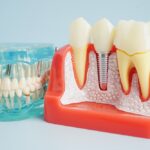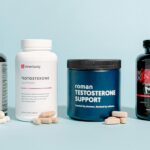Testosterone replacement therapy (TRT) is a medical treatment that restores hormone levels in individuals with a clinical deficiency. Testosterone therapy, using gels, injections, or patches, provides several practical methods with various benefits. Here is more information about the connection between TRT and improvements to mood:
Reduced Depressive Symptoms
There is a link between testosterone levels and depressive symptoms, including in men with hypogonadism. Low testosterone has been observed in individuals experiencing symptoms of depression. Because hormonal imbalances may contribute to mood disturbances, addressing low testosterone could be part of a broader wellness strategy.
Individuals may achieve alleviation of certain depressive feelings after starting testosterone therapy. TRT is associated with mood elevation in some hypogonadal men experiencing depression. These observations may lead to further scientific research into the processes involved.
Low testosterone is not the sole factor influencing mental health outcomes. It is helpful to take into account other underlying conditions or stressors that can also affect mood. While this type of therapy shows promise, its effectiveness can vary depending on individual circumstances such as age, overall health, and the presence of coexisting conditions.
Linked to Serotonin
Testosterone interacts with serotonin, and this connection may influence mood regulation. Testosterone interacts with the systems that produce and utilize serotonin, a neurotransmitter that helps regulate mood, sleep, and appetite. When testosterone levels are low, this interaction might be disrupted, potentially affecting emotional balance.
The relationship is complex. Testosterone may influence the number of serotonin receptors or the efficiency of serotonin transport within the brain. Exploring this relationship provides a basis for understanding how hormonal changes might be associated with shifts in mood.
Improved Clarity
Cognitive function and mental clarity are areas where testosterone may play a part. Men with low testosterone typically encounter issues with focus and a general feeling of mental fog that can impact daily activities. Restoring testosterone to a normal range may be used to create improvements in these subjective cognitive experiences.
Individuals undergoing testosterone therapy can aim for:
- Sharper focus
- Better concentration
- Enhanced mental stamina
Testosterone may also influence the brain’s ability to adapt and reorganize itself. Maintaining optimal testosterone levels could therefore play a role in supporting overall cognitive ability.
Used as Adjunct Therapy
Testosterone therapy is not a first-line treatment for primary depression or other mood disorders. Instead, when a patient presents with both clinically low testosterone and mood-related symptoms, TRT can be used alongside traditional treatments. A physician will first diagnose the primary cause of any mood change before recommending a course of action. This approach places TRT as a supportive measure, not a standalone solution for psychological conditions.
Schedule Testosterone Therapy Sessions
Understanding how testosterone might affect your mood is an important part of overall health. If you’ve been diagnosed with low testosterone and have questions about how it could impact your well-being, seek professional guidance. A holistic approach, combining lifestyle changes like diet and exercise with testosterone therapy, is key to more effective results. Schedule a consultation with a qualified healthcare provider to discuss your options.











